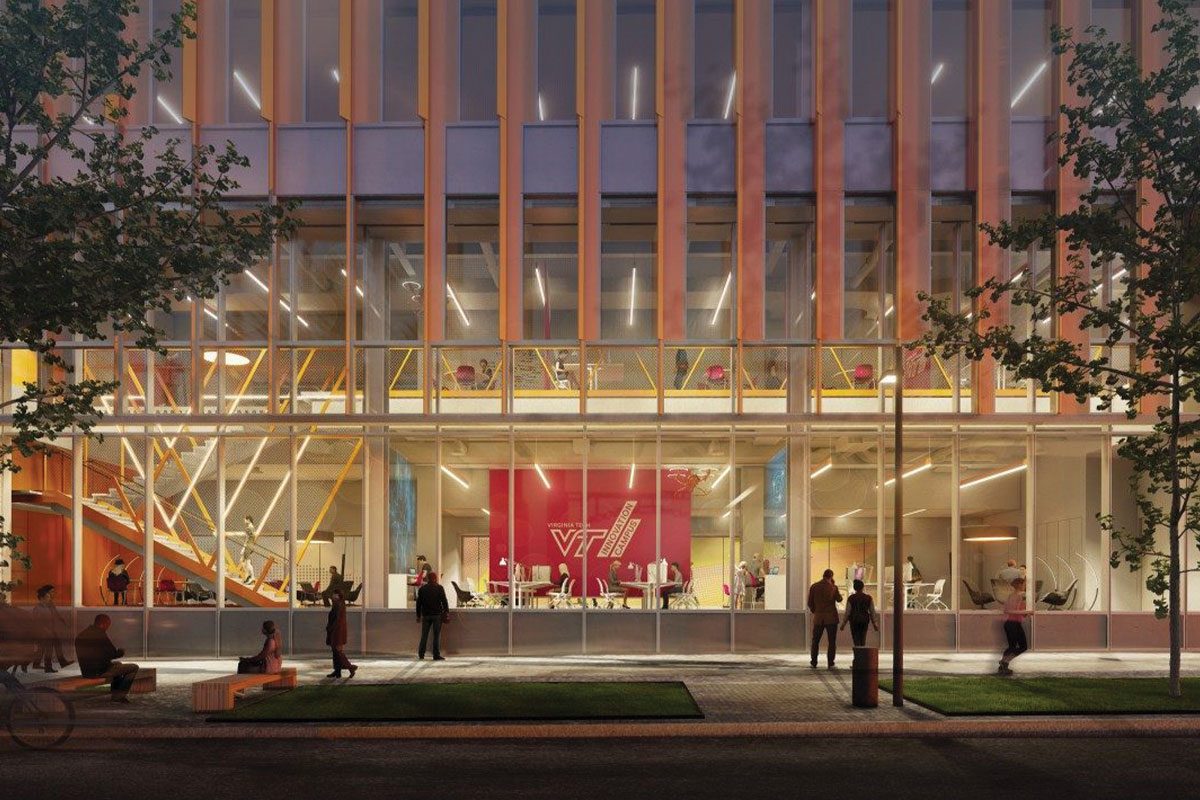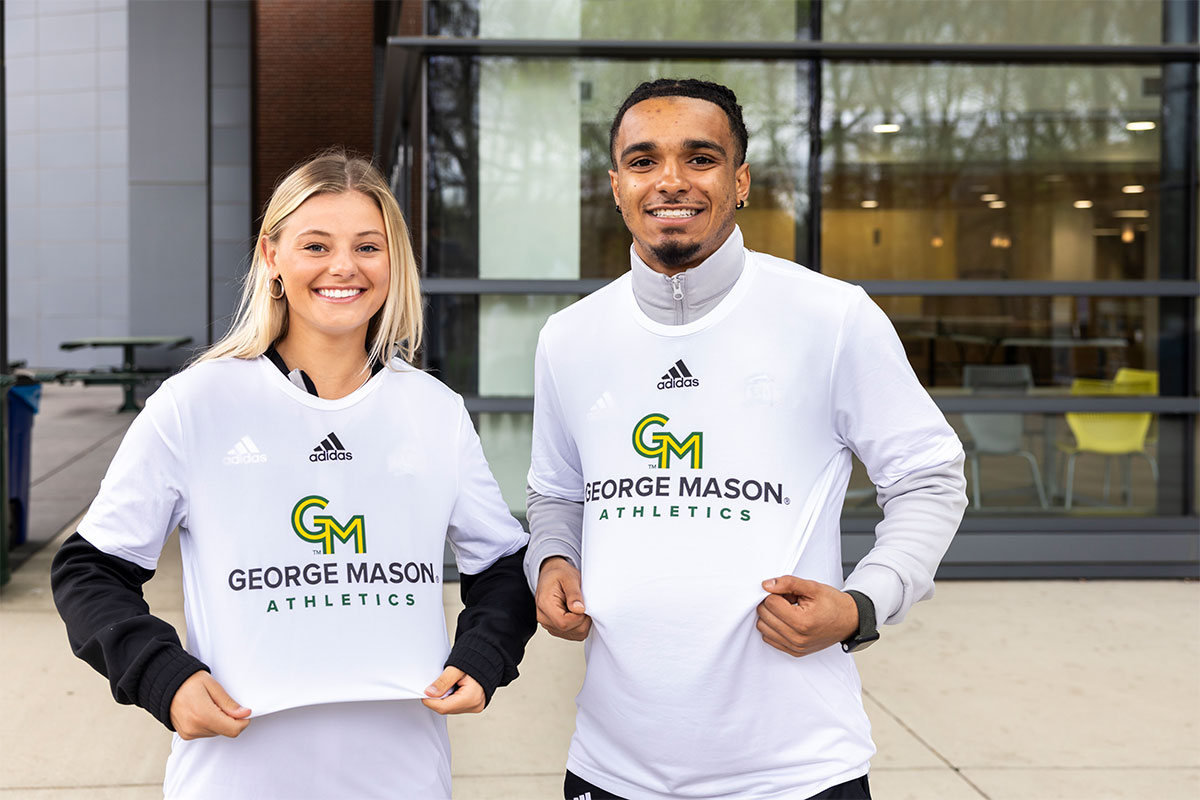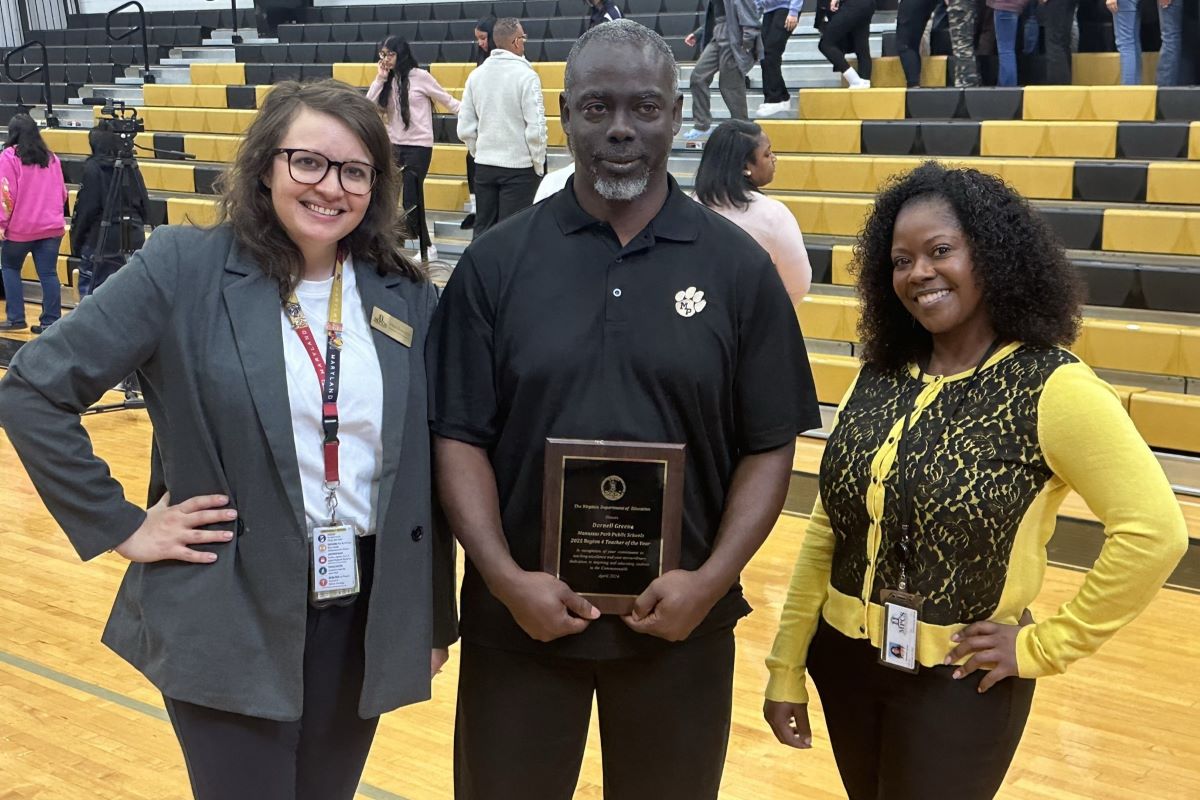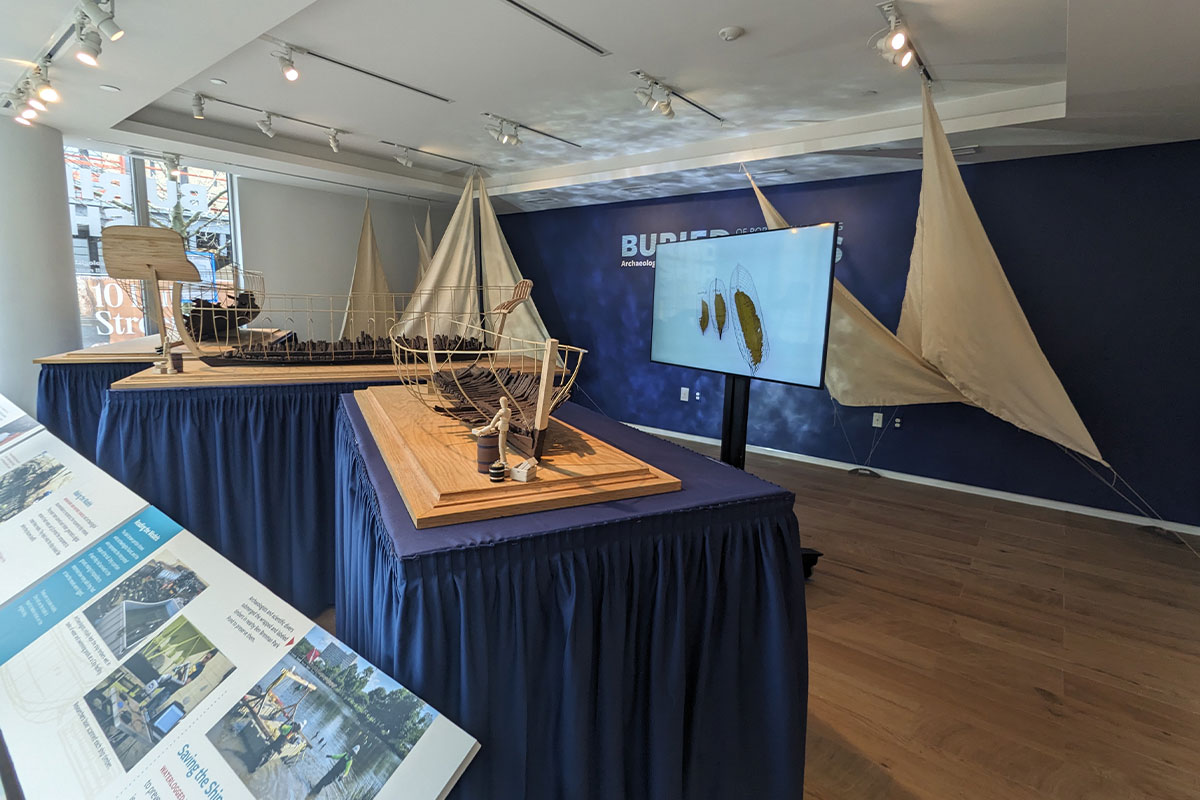The University of Virginia and Virginia Tech are two institutions close to the hearts of the many alumni, parents, students, or student hopefuls in our region. Northern Virginia Magazine takes a look at their history as both rivals and partners and shows you how they stack up.
Virginia Tech has had a presence in NoVA for more than 50 years, but its Innovation Campus in Alexandria that is set to open in fall 2024 will have a specific mission: keep the U.S. competitive on the world stage.
The first of what will be three academic buildings is a faceted structure shaped like a gemstone with photovoltaics throughout the windows that generate electricity.
Innovation Campus Vice President and Executive Director Lance Collins says it’s a matter of sustainability, not just a design feature. Sustainability is key to Virginia Tech’s NoVA mission: Address the tech talent shortage by significantly increasing its graduate programs.
“We were part of the deal to get Amazon,” Collins says. “It was in recognition that there’s a talent shortage.” But it goes far beyond Amazon.
When the 1-million-square-foot campus is complete, Virginia Tech expects to have 750 students enrolled per year in its master’s programs in computer science and computer engineering, making the graduate tech program one of the nation’s largest, Collins says.
“We’re on a really aggressive timeline for that,” says Julie Ross, dean of engineering.
Virginia Tech is actively engaged in expanding programs, increasing enrollments, conducting research, and recruiting faculty to support growth in Northern Virginia, Ross says.
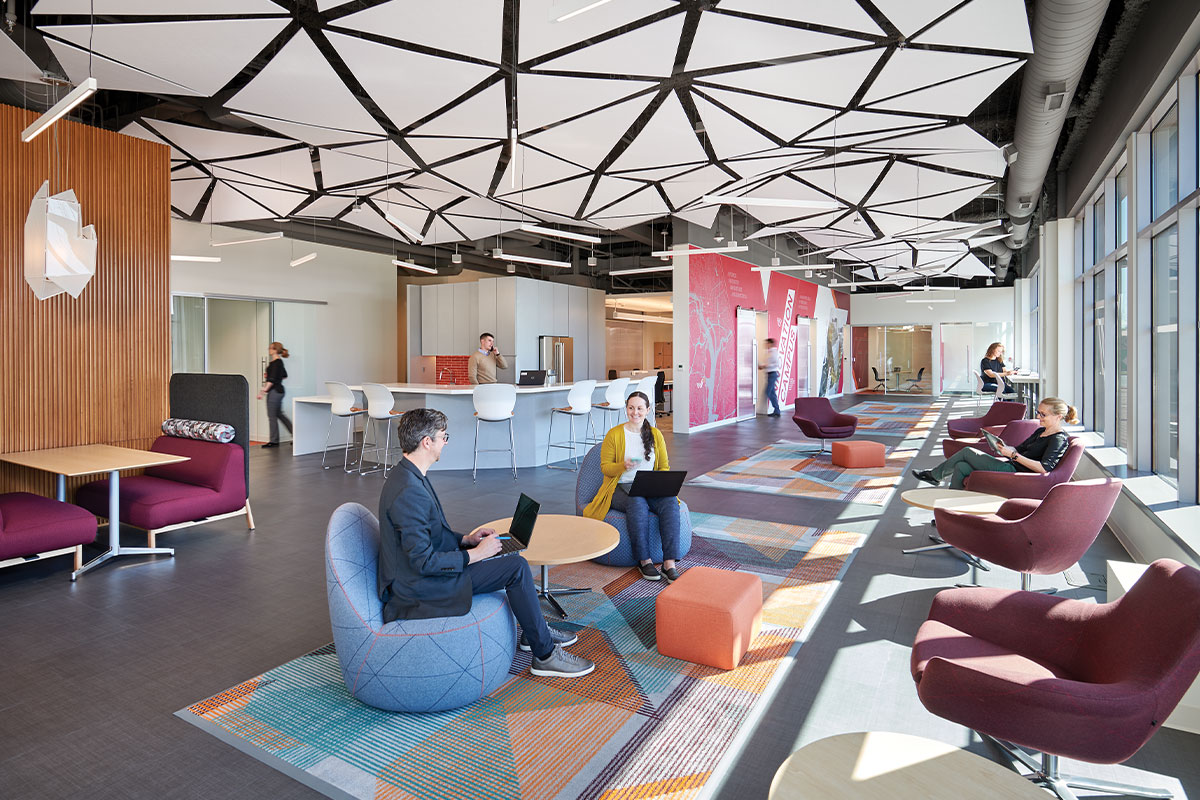
As companies like Boeing and Microsoft boost their regional presence, Virginia Tech will look to bring in corporate partners. Coursework will be project-based to produce people who “will ultimately be able to take on real-life challenges,” Collins says, adding that the proximity to the U.S. government and its contractors is particularly important when it comes to dealing with the nation’s “No. 1 competitor” — China.
“We’re in a battle, and the United States sits in a leading position, but … There’s a great competition.”
While the U.S. holds the pole position for designing computer chips, the world’s largest manufacturer is Taiwan’s TSMC, which is under never-ending threat from China. Outsourcing chip manufacturing, Collins says, puts the U.S. at risk, part of the reason Virginia Tech is eager to be on the ground floor of scaling innovation and research.
“This national imperative is bigger than any one institution, any one company,” says Ross. “What we have to do is build an ecosystem that can support what this nation needs us to support.”
As for the specifics of the university’s plans after the Innovation Campus opens, Ross says: “I can’t spill the beans. … We are right now looking at other needs in the region and the other opportunities.”
Feature image courtesy Virginia Tech
RELATED STORIES:
- UVA and Virginia Tech: How the Rivals are Stronger Together
- UVA Stays Ahead of the Curve with its NoVA Presence
- For UVA and Virginia Tech, Friendly Rivalry Is the Name of the Game
- Interns’ Guide to Campus Life at UVA and Virginia Tech
- UVA and Virginia Tech’s Presidents Share Their Thoughts on Challenges and the Future
- Explore Charlottesville, the Charming Area Surrounding UVA
- Discover the Beauty of Blacksburg, Virginia Tech’s College Town
This story originally ran in our August issue. For more stories like this, subscribe to Northern Virginia Magazine.

